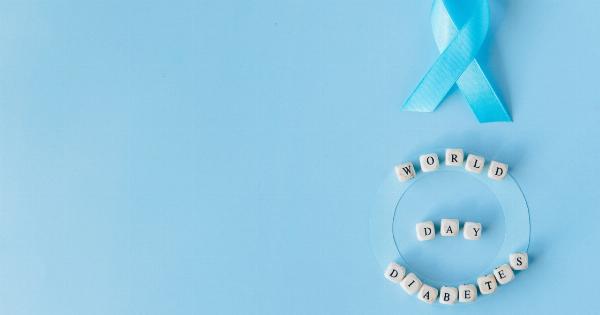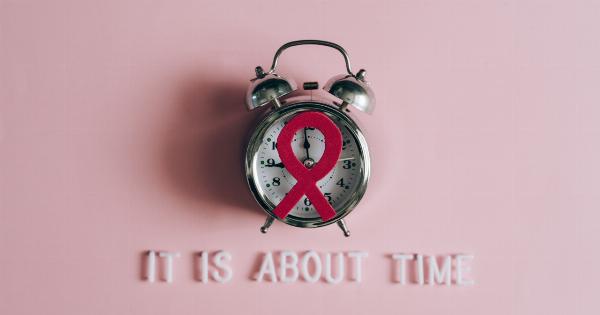World AIDS Day is observed every year on December 1st. It is an opportunity for people worldwide to unite in the fight against HIV, show support for those living with HIV, and remember those who have lost their lives to AIDS-related illnesses.
The theme for World AIDS Day 2017 is “Together, We Count,” highlighting the importance of everyone coming together and taking action to fight against HIV and AIDS.
The Global Impact
HIV/AIDS remains one of the most significant global health challenges, with millions of people around the world affected by the virus.
According to the World Health Organization (WHO), approximately 37 million people were living with HIV at the end of 2016.
Although progress has been made in the prevention and treatment of HIV, there is still a long way to go to achieve the UNAIDS 90-90-90 target.
This target aims to have 90% of people living with HIV know their status, 90% of people who know their status accessing treatment, and 90% of people on treatment achieving viral suppression by the year 2020.
World AIDS Day serves as a reminder of the ongoing efforts needed to address the challenges posed by HIV and AIDS and to recommit to achieving these ambitious targets.
The Importance of Awareness
Creating awareness about HIV/AIDS is crucial in order to reduce stigma, promote prevention, and encourage testing and treatment.
Many individuals and organizations use World AIDS Day as an opportunity to educate the public and raise awareness about the impact of HIV/AIDS on individuals and communities.
Through various initiatives, such as educational campaigns, community events, and media coverage, people are encouraged to learn the facts about HIV/AIDS, understand the importance of safe practices, and support those affected by the virus.
Getting Involved
There are numerous ways for individuals to get involved in World AIDS Day and make a difference:.
1. Educate Yourself and Others
Take the time to learn about HIV/AIDS, its causes, and preventative measures. Share accurate information with friends, family, and colleagues to help dispel myths and misconceptions surrounding the virus.
2. Get Tested
Knowing your HIV status is crucial for both your own health and the health of others. Encourage friends and family to get tested as well.
3. Support Those Living with HIV
Show compassion and understanding towards individuals living with HIV/AIDS. Offer support and assistance to those in need, whether it’s through volunteering or donating to organizations that provide care and support services.
4. Advocate for Better Access to Treatment
Advocate for policies and actions that improve access to HIV prevention, testing, treatment, and care services. Support organizations working towards these goals and participate in advocacy initiatives.
5. Organize or Participate in Local Events
Join local events organized by community groups, non-profit organizations, or healthcare institutions. These events often include educational sessions, fundraising activities, and HIV testing.
6. Wear a Red Ribbon
The red ribbon is the universal symbol of awareness and support for those living with HIV. Wear a red ribbon to show your solidarity and raise awareness.
7. Use Social Media
Utilize social media platforms to share information about World AIDS Day and to encourage others to take action. Use relevant hashtags and share inspiring stories or facts to reach a wider audience.
8. Donate to HIV/AIDS Organizations
Consider making a financial contribution to organizations working to prevent HIV transmission, provide treatment and care, and support research efforts.
9. Encourage Safe Practices
Promote the importance of safe practices such as using condoms, practicing abstinence or mutual monogamy, and getting regular sexual health check-ups.
10. Reflect and Remember
Take a moment to reflect on the lives lost to AIDS-related illnesses and remember the impact HIV/AIDS has had on individuals and communities worldwide. This reflection can serve as a reminder of the ongoing need for action and support.
Conclusion
World AIDS Day is an important occasion to raise awareness, educate, and unite people in the fight against HIV/AIDS.
With collective efforts, dedication, and support, we can strive towards an AIDS-free future where everyone has access to prevention, treatment, care, and support.






















